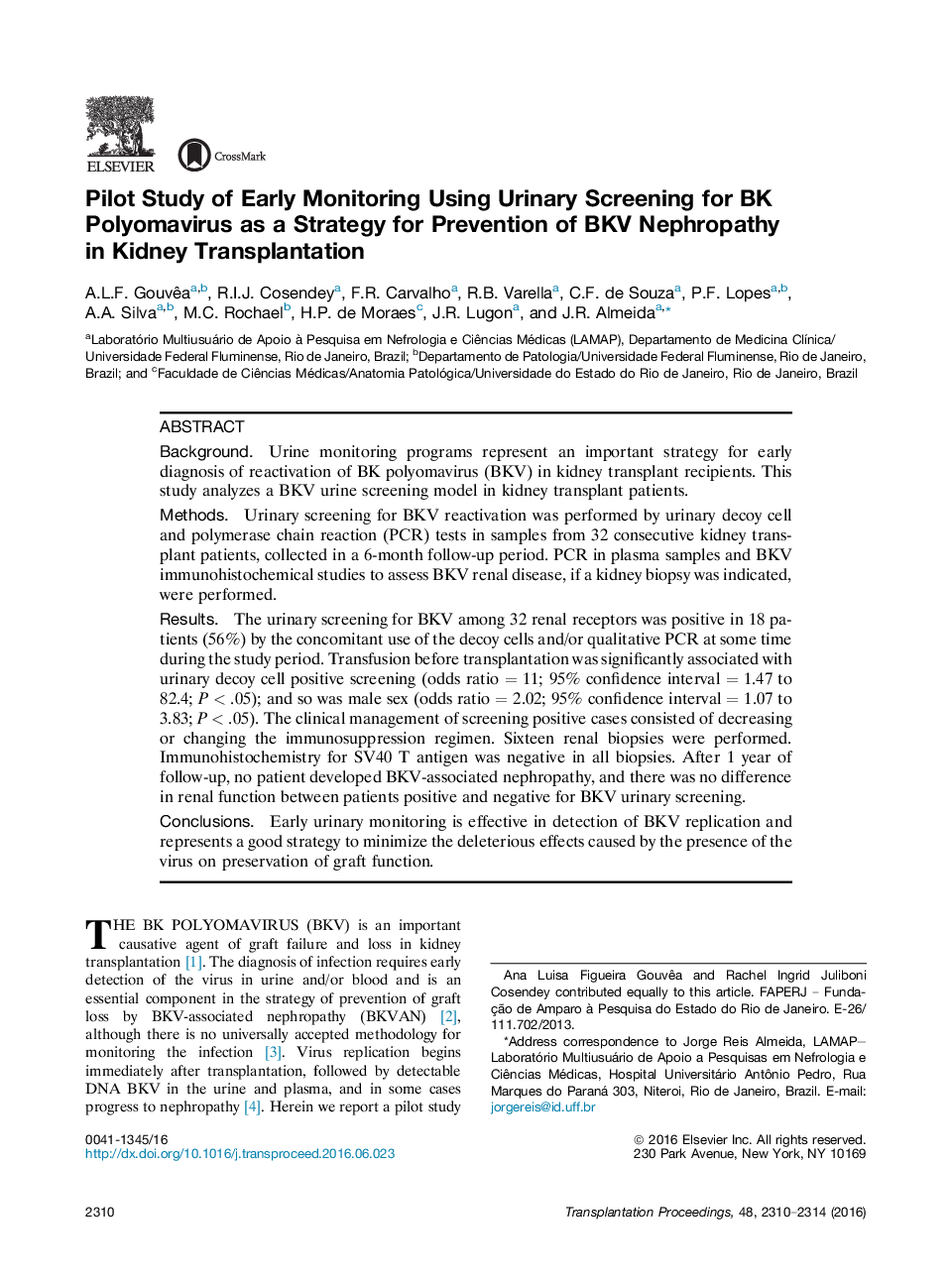| کد مقاله | کد نشریه | سال انتشار | مقاله انگلیسی | نسخه تمام متن |
|---|---|---|---|---|
| 5729355 | 1411680 | 2016 | 5 صفحه PDF | دانلود رایگان |

BackgroundUrine monitoring programs represent an important strategy for early diagnosis of reactivation of BK polyomavirus (BKV) in kidney transplant recipients. This study analyzes a BKV urine screening model in kidney transplant patients.MethodsUrinary screening for BKV reactivation was performed by urinary decoy cell and polymerase chain reaction (PCR) tests in samples from 32 consecutive kidney transplant patients, collected in a 6-month follow-up period. PCR in plasma samples and BKV immunohistochemical studies to assess BKV renal disease, if a kidney biopsy was indicated, were performed.ResultsThe urinary screening for BKV among 32 renal receptors was positive in 18 patients (56%) by the concomitant use of the decoy cells and/or qualitative PCR at some time during the study period. Transfusion before transplantation was significantly associated with urinary decoy cell positive screening (odds ratio = 11; 95% confidence interval = 1.47 to 82.4; PÂ < .05); and so was male sex (odds ratio = 2.02; 95% confidence interval = 1.07 to 3.83; PÂ < .05). The clinical management of screening positive cases consisted of decreasing or changing the immunosuppression regimen. Sixteen renal biopsies were performed. Immunohistochemistry for SV40 T antigen was negative in all biopsies. After 1 year of follow-up, no patient developed BKV-associated nephropathy, and there was no difference in renal function between patients positive and negative for BKV urinary screening.ConclusionsEarly urinary monitoring is effective in detection of BKV replication and represents a good strategy to minimize the deleterious effects caused by the presence of the virus on preservation of graft function.
Journal: Transplantation Proceedings - Volume 48, Issue 7, September 2016, Pages 2310-2314